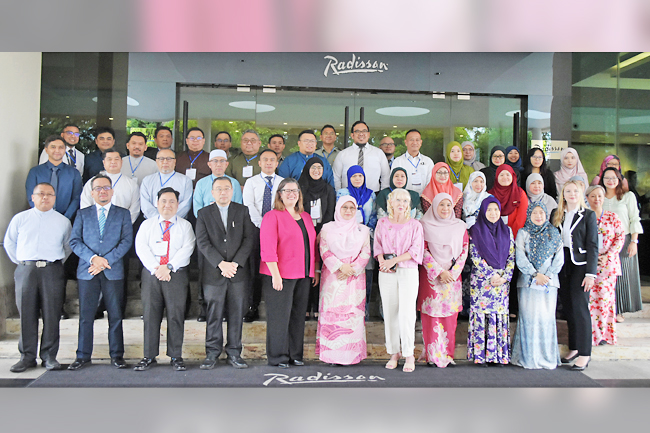The first National Biosafety and Biosecurity Strategy workshop was held at Radisson Hotel Brunei yesterday, with the goal of establishing the groundwork for a national framework to tackle related incidents and hazards in the country.
The workshop, hosted by the Department of Laboratory Services, the Department of Scientific Services, the Department of Agriculture and Agrifood and the Fisheries Department, was a result of an external evaluation in 2019 to meet the requirements of International Health Regulations (IHR) 2005, the legal framework for global health security.
The framework outlines obligations of member states of the World Health Organization, including Brunei Darussalam, to develop minimum core capacities to detect, prevent, respond and stop IHR-related hazards and points of entry.
Acting Deputy Permanent Secretary (Professional) at the Ministry of Health Dr Hajah Rafidah binti Haji Gharif, the guest of honour, underscored the importance of biosafety and biosecurity in the country.
Dr Hajah Rafidah said, “One of the priority actions emerged from the joint external evaluation (in 2019) is the development and endorsement of the national regulatory documents and guidelines for biosafety and biosecurity, including information security. This two-day workshop aims to develop national framework which will strengthen and ensure oversight of all biological risks in the country effectively and comprehensively in a sustainable manner.”
Around 45 heads of departments, senior officers from various government agencies participated in the two-day workshop facilitated by consultants from International Federation of Biosafety Association (IFBA). The workshop is fully borne by Global Affairs Canada.
Meanwhile High Commissioner of Canada to Brunei Darussalam Ambra Dickie shared, “Canada is proud to support this workshop through our Weapons Threat Reduction Programme (WTRP). The WTRP, which implements Canada’s commitments to the G7-led Global Partnership Against the Spread of Weapons and Materials of Mass Destruction (Global Partnership), works with partners to implement concrete threat reduction programming to prevent the acquisition and use of weapons and materials of mass destruction.”
She added, “Our collaboration with ASEAN and its member states is particularly significant.
Over the past decade, Canada and ASEAN have worked together on the Mitigation of Biological Threats programme.
“It is through this collaboration that we address terrorism-related threats posed by biological weapons and related materials, in united pursuit of a safer region.” – James Kon






